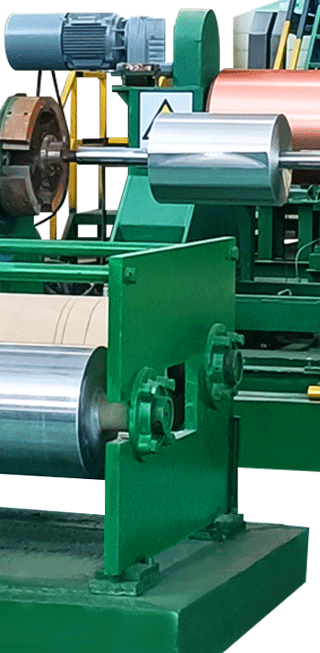Industrial aluminium foil is a highly versatile material used in many industries for packaging, insulation, protection, and more. Known for its strength, flexibility, and resistance to heat and corrosion, aluminium foil helps improve product performance and energy efficiency in various environments.
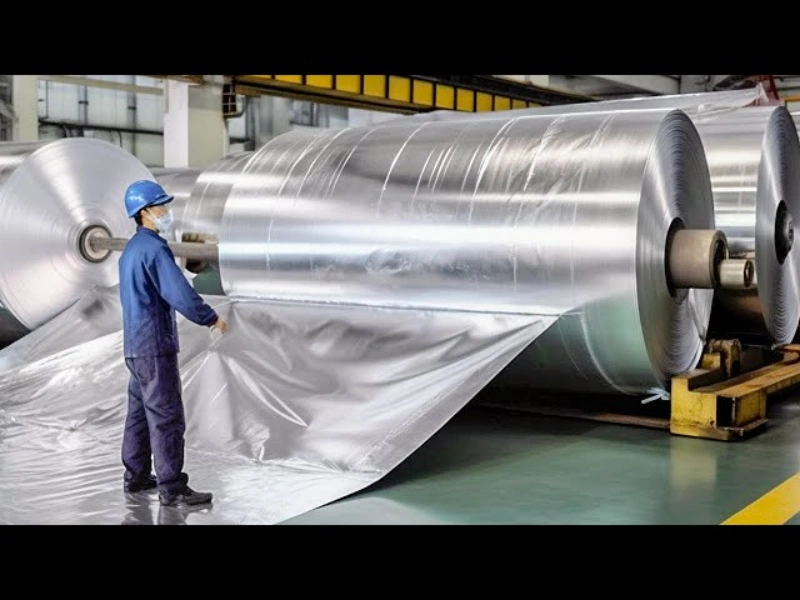
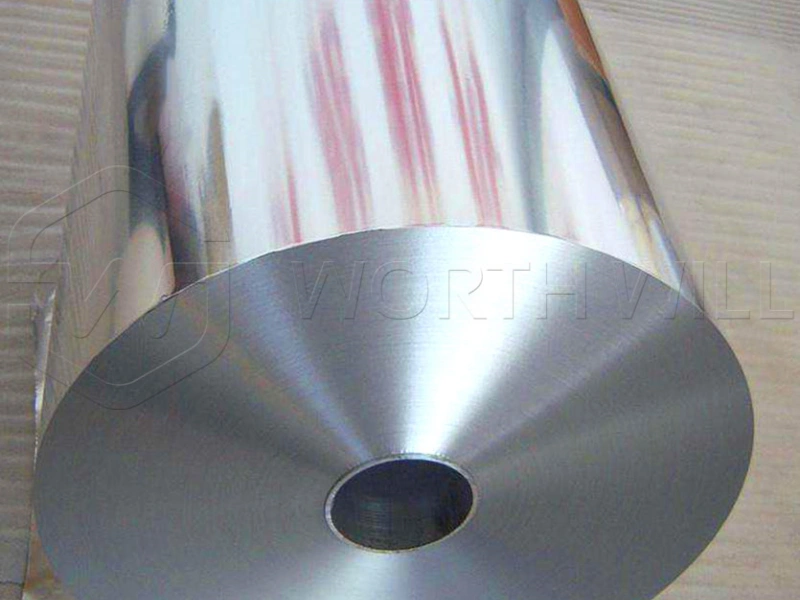
Specification of Industrial Aluminium Foil
| Parameter | Details |
|---|---|
| Thickness | 0.006 mm – 0.2 mm |
| Width | 100 mm – 1500 mm |
| Alloy | 8011, 3003, 1050, 1235, 1100 |
| Temper | O (soft), H18, H22, H24 |
| Surface | One side bright, one side matte |
| Core ID | 76 mm / 152 mm (paper or aluminum) |
| Coil Weight | 100–1000 kg or customized |
| Packaging | Wooden pallet, plastic film |
Classification of Industrial Aluminium Foil
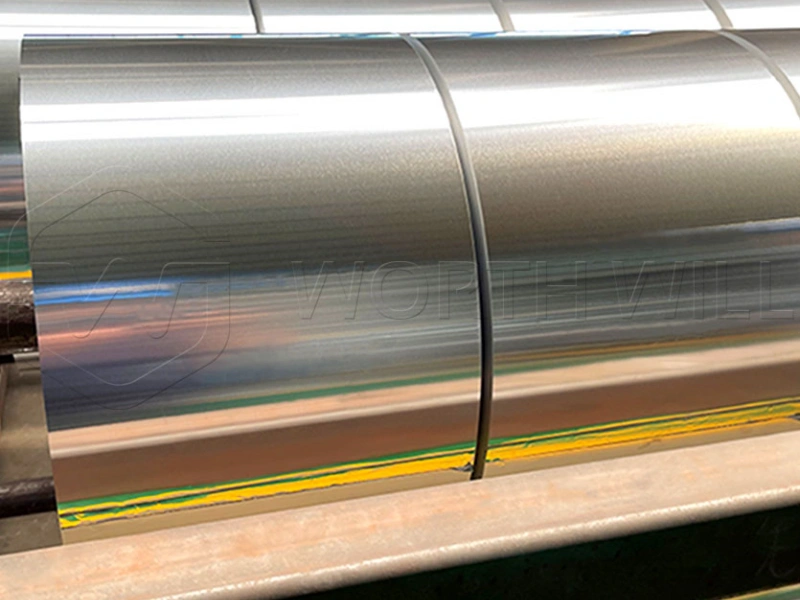
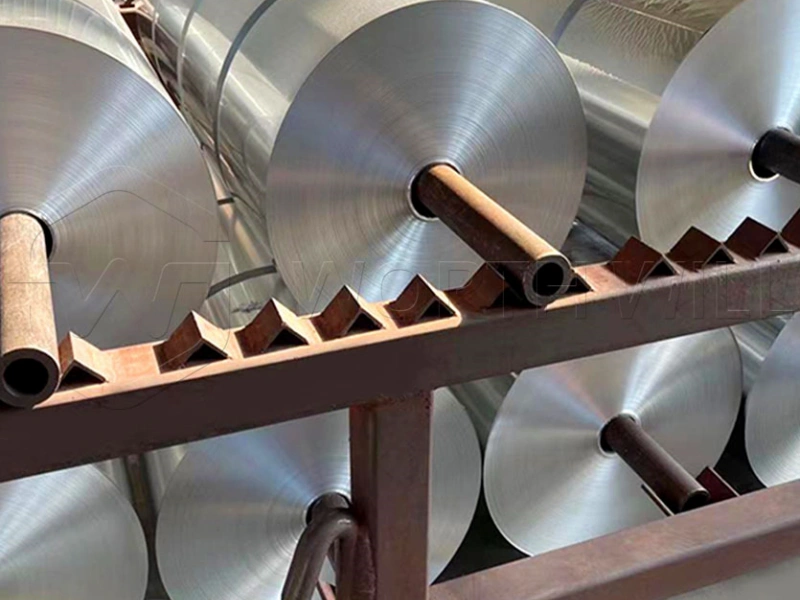
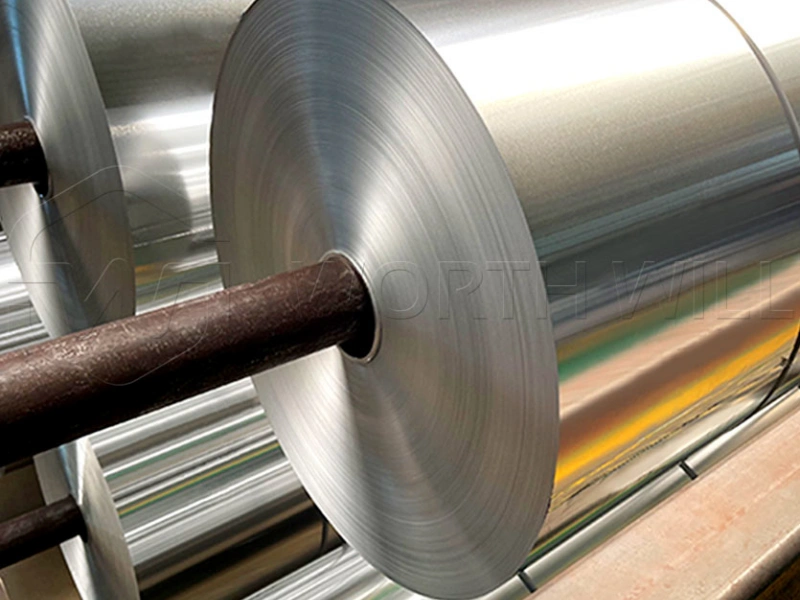
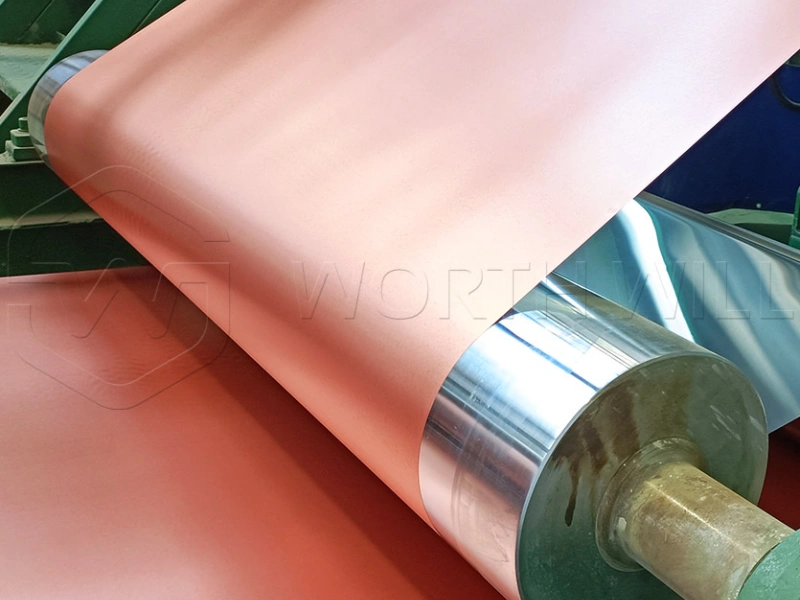
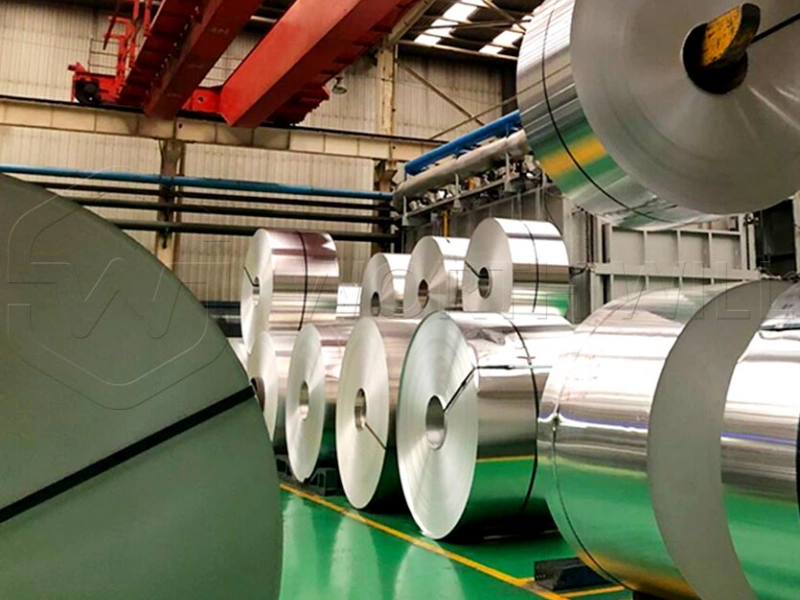
Industrial aluminium foil comes in different types based on its application and properties:
- Packaging Aluminium Foil – For food, medicine, and cigarette packaging
- Insulation Aluminium Foil – For building heat insulation and HVAC systems
- Electronic Aluminium Foil – Used in batteries and capacitors
- Cable Wrap Aluminium Foil – For shielding and wrapping electrical cables
- Industrial Laminated Foil – Combined with plastic or paper for barrier protection
What Is Industrial Aluminium Foil Used For?
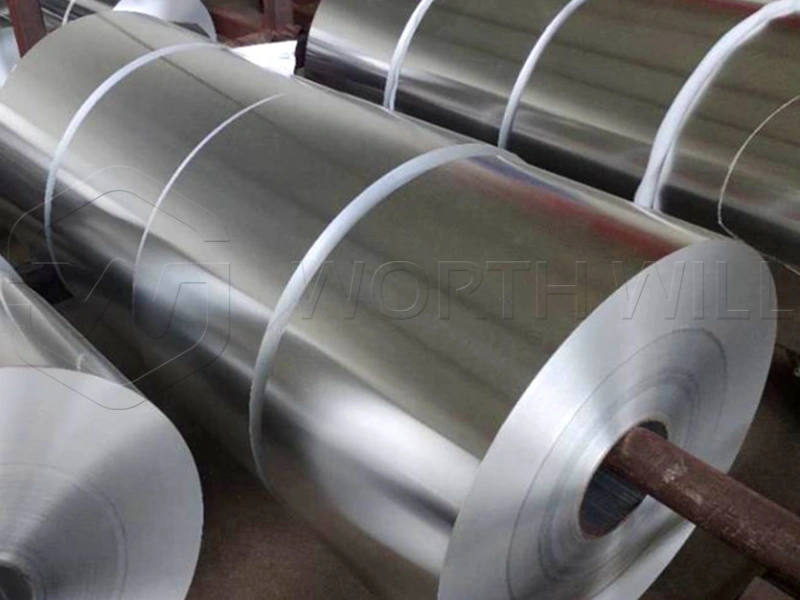
Aluminium foil in industry is used to protect, seal, insulate, and improve performance. Its excellent physical and chemical properties make it suitable for a wide range of sectors.
Main Applications Include:
- HVAC Industry
- Duct insulation wrap
- Heat reflective coating
- Air conditioner duct lining
- Electronics
- Lithium battery foil
- Capacitor foil
- EMI/RFI shielding
- Cables and Wires
- Cable wrap shielding foil
- Aluminum-polyester tape combinations
- Building & Construction
- Roof insulation foil
- Vapor barriers and reflective insulation
- Wall insulation materials
- Food Packaging
- Industrial food container production
- Catering trays and lids
- Lining for packaging films
- Pharmaceutical Packaging
- PTP blister foil
- Cold forming aluminum foil
- Medical pouch laminate
Industrial Aluminium Foil: The Unsung Hero of Modern Industry
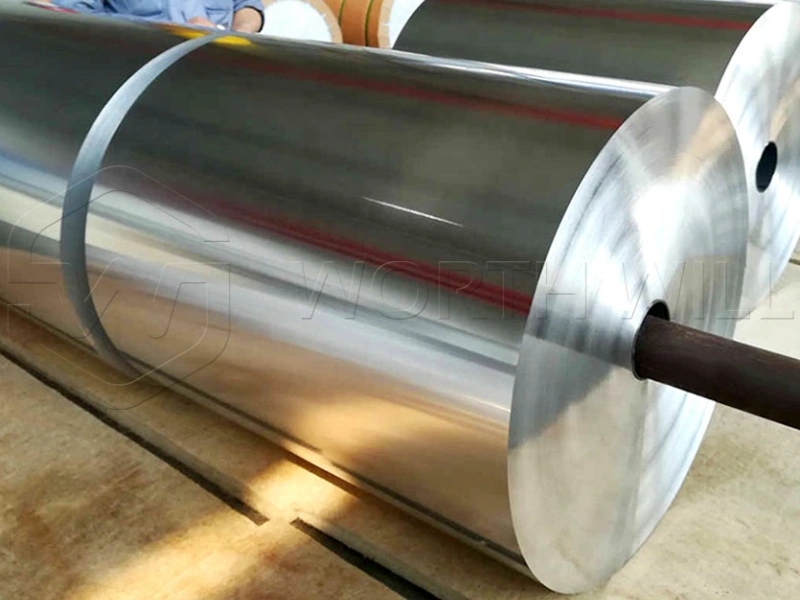
When you think of aluminum foil, your mind might first go to your kitchen cupboard, where you use it for cooking or wrapping leftovers. But beyond the kitchen, there’s a powerful and specialized version: Industrial Aluminium Foil. This remarkable material is an essential component in countless industries, playing critical roles from packaging and insulation to electronics and automotive parts. It’s truly an unsung hero, enabling efficiency, protection, and innovation across the globe.
Unlike the thinner household variety, industrial aluminium foil is produced to meet demanding specifications for thickness, purity, and specific performance characteristics. Its unique combination of properties makes it indispensable for a wide range of sophisticated applications.
What is Industrial Aluminium Foil?
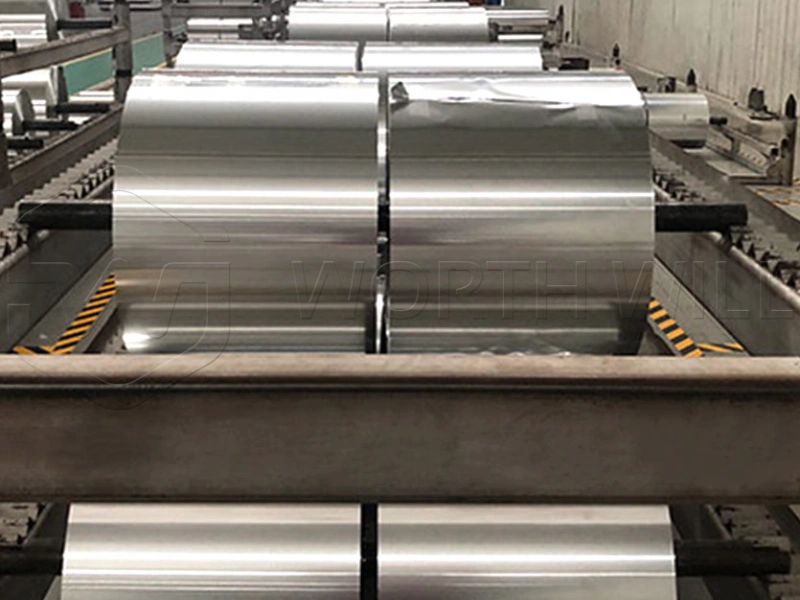
Industrial aluminium foil is a highly specialized form of aluminum sheet, rolled to extremely thin gauges. While household foil is typically around 0.016 mm thick, industrial applications can range from ultra-thin capacitor foils (less than 0.005 mm) to thicker container foils (up to 0.2 mm). It’s produced in large, heavy-duty rolls, often much wider and longer than anything you’d find in a supermarket.
The manufacturing process involves continuously rolling pure aluminum ingots or slabs between heavy steel rollers, thinning the material step by step until the desired gauge is achieved. For very thin foils, two layers are often rolled together to prevent tearing, which is why one side appears shiny and the other dull – a common feature in all aluminum foil. This industrial-grade foil is then precisely slit and rewound into specific sizes for various industrial uses.
Key Properties and Advantages of Industrial Aluminium Foil

The widespread adoption of industrial aluminium foil across diverse sectors is due to its impressive array of properties:
- Exceptional Barrier Protection: This is perhaps its most vital property. Industrial foil creates an almost impenetrable barrier against moisture, oxygen, light, microorganisms, and odors. This is crucial for extending the shelf life of sensitive products, especially in food and pharmaceutical packaging.
- Excellent Thermal Conductivity: Aluminum is a superb conductor of heat. This property makes industrial foil valuable in applications requiring efficient heat transfer, such as heat exchangers or in cooking processes.
- High Reflectivity to Radiant Heat: The shiny surface of aluminium foil is an excellent reflector of radiant heat (up to 98%). This makes it ideal for thermal insulation applications, helping to keep things hot or cold.
- Lightweight: Despite its strength and barrier properties, aluminum is very light. This reduces the overall weight of products, leading to lower transportation costs and improved fuel efficiency in vehicles and aircraft.
- Ductility and Formability: Industrial aluminium foil is highly flexible and can be easily shaped, folded, or embossed without breaking. This allows it to conform to various product shapes and be integrated into complex designs.
- Non-Toxic and Food Safe: When properly processed and purified, industrial aluminium foil is non-toxic, odorless, and tasteless. This makes it safe for direct contact with food and pharmaceutical products.
- Corrosion Resistance: Aluminum naturally forms a protective oxide layer that resists corrosion, especially in neutral conditions. This makes industrial foil suitable for use in various environments.
- Electrical Conductivity: Aluminum is a good electrical conductor, a property exploited in certain electronic applications.
- Recyclability: Aluminium foil is 100% recyclable without loss of quality. Recycling aluminum requires significantly less energy than producing primary aluminum, making it an environmentally responsible choice for industries.
Common Applications of Industrial Aluminium Foil
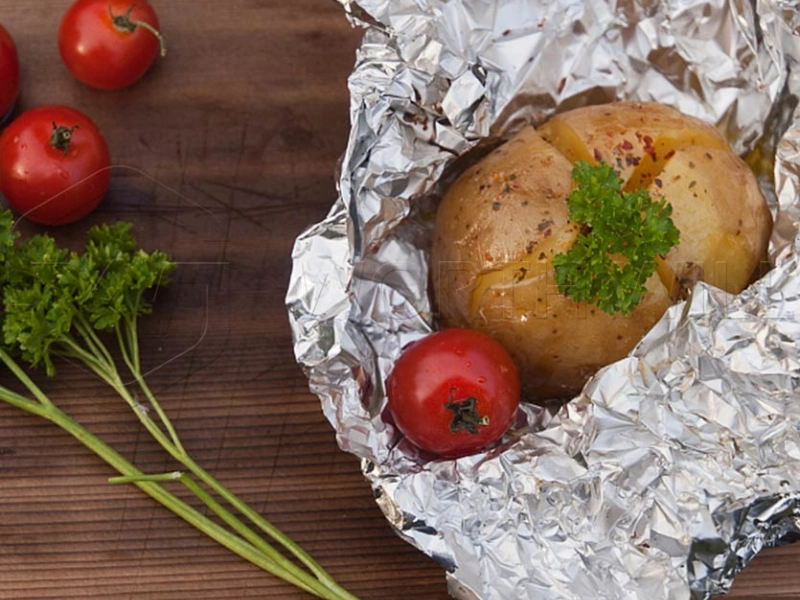
The versatility of industrial aluminium foil means it finds a home in an astonishing array of industries:
- Packaging Industry:
- Food Packaging: Used extensively for dairy products (yogurt lids), confectionery, processed foods, ready meals, retort pouches, and aseptic packaging for juices and milk. It maintains freshness and extends shelf life.
- Pharmaceutical Packaging: Essential for blister packs, strip packs, and bottle cap seals, protecting medicines from moisture, light, and contamination.
- Cosmetics and Personal Care: Used for sachets, tubes, and cap liners to preserve product integrity and fragrance.
- Industrial Goods Packaging: Protects sensitive electronic components, chemicals, and industrial parts from environmental factors.
- Thermal Insulation:
- Building Insulation: Integrated into building materials for roofs, walls, and floors to provide effective thermal barriers, reducing energy consumption.
- Pipe and Duct Insulation: Used to insulate pipes carrying hot or cold fluids, and in HVAC (Heating, Ventilation, and Air Conditioning) systems to minimize heat loss or gain.
- Automotive Insulation: Applied as heat shields in vehicles to protect sensitive components from engine heat.
- Electrical and Electronics:
- Capacitors: Ultra-thin aluminium foil is a critical component in electrolytic capacitors, which are vital for storing electrical energy in electronic devices.
- Cable Shielding: Used to shield electrical and communication cables from electromagnetic interference.
- Transformers and Coils: Employed in certain transformer designs.
- Automotive Industry:
- Beyond insulation, it’s used for various components like gaskets, heat exchangers (radiators), and decorative trim.
- HVAC Systems:
- Used in the manufacture of flexible ducts and as a crucial element in maintaining air quality and temperature control in commercial and residential buildings.
- Lithographic Printing:
- Specialized industrial aluminium foil is used to make printing plates for the offset printing process.
- Other Industrial Uses:
- Adhesive Tapes: Used as a backing material for various industrial tapes due to its heat resistance and barrier properties.
- Aerospace: Components for aircraft, where lightweight and high-performance materials are paramount.
Choosing the Right Industrial Aluminium Foil
Selecting the correct industrial aluminium foil is critical for the success of any application. Factors to consider include:
- Application Requirements: What specific properties are paramount? Is it barrier protection, thermal insulation, electrical conductivity, or formability?
- Thickness and Width: These are determined by the functional needs and the machinery used for processing.
- Alloy and Temper: Different aluminum alloys (e.g., 1xxx, 3xxx, 8xxx series) offer varying strengths and properties. The temper (e.g., soft annealed or hard rolled) affects its flexibility and strength.
- Coatings and Laminations: Many industrial foils are laminated with polymers, paper, or other materials to enhance properties like heat sealability, strength, or printability.
- Surface Finish: Depending on the application, a bright, matte, or specific embossed finish might be required.
- Quality Standards and Certifications: Especially for food and pharmaceutical applications, ensuring compliance with relevant safety and quality standards is paramount.
- Supplier Reputation: Partnering with a reputable industrial aluminium foil supplier ensures consistent quality and reliable supply.
Conclusion
Industrial Aluminium Foil is far more than just a kitchen staple. It is a highly engineered material, a cornerstone of modern industrial processes, silently contributing to the efficiency, safety, and quality of countless products we rely on daily. Its exceptional barrier properties, thermal performance, lightweight nature, and recyclability make it an incredibly valuable and sustainable choice for a vast array of demanding applications. As industries continue to evolve, the versatility and performance of industrial aluminium foil will undoubtedly ensure its enduring role as a key material in innovation and manufacturing worldwide.

